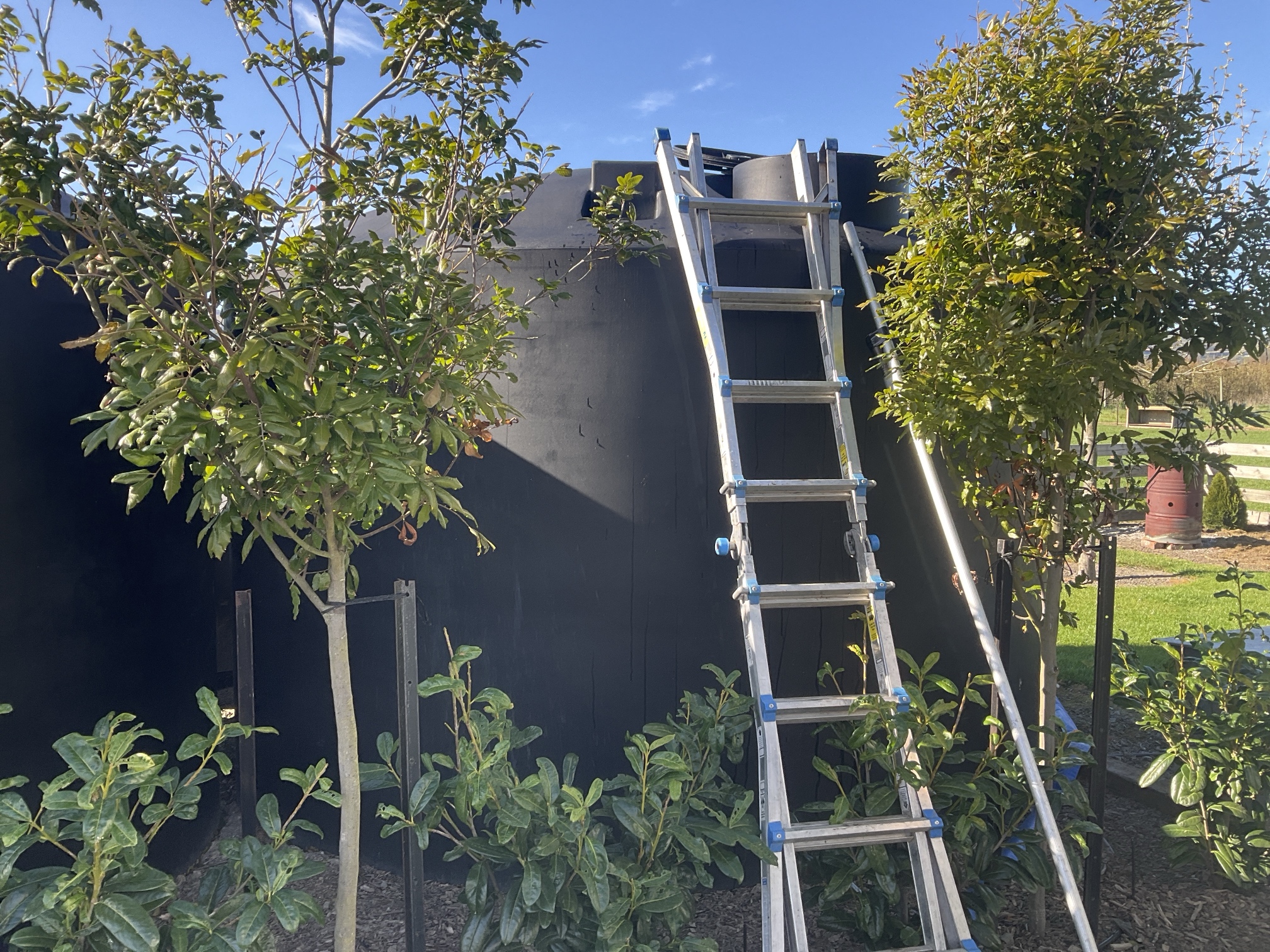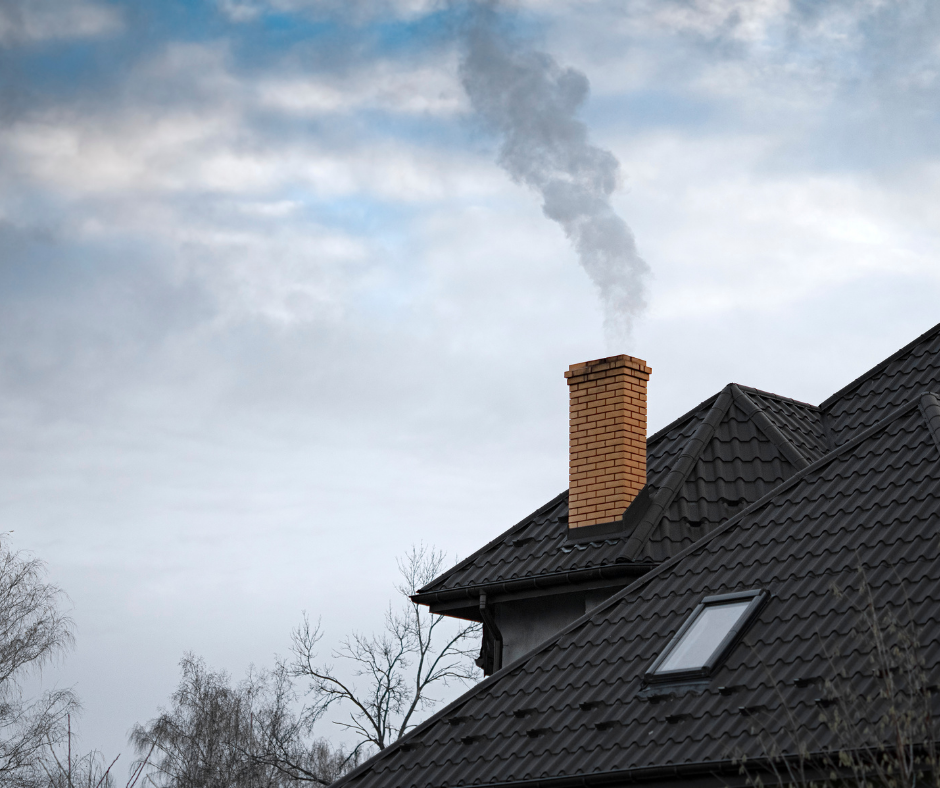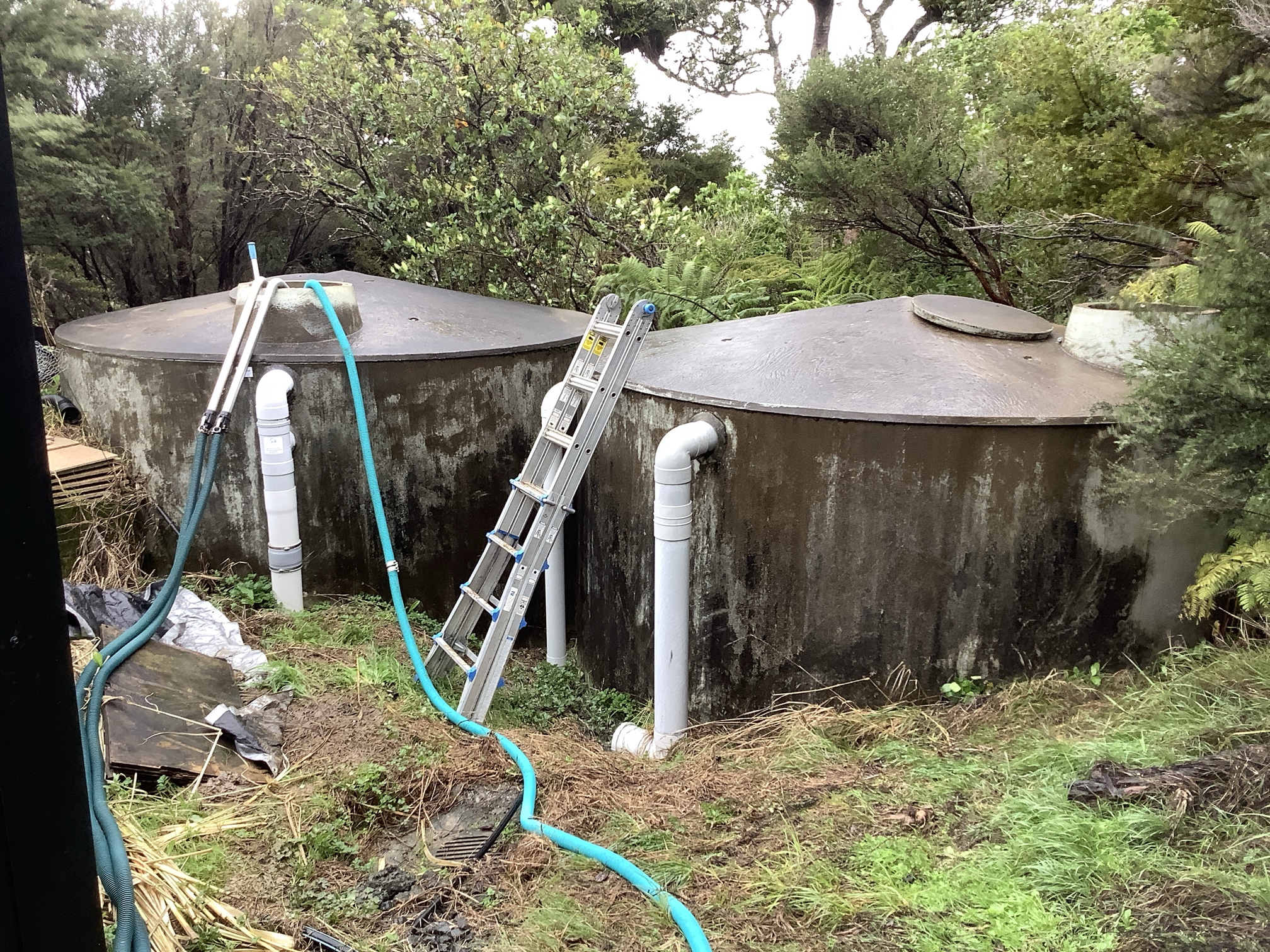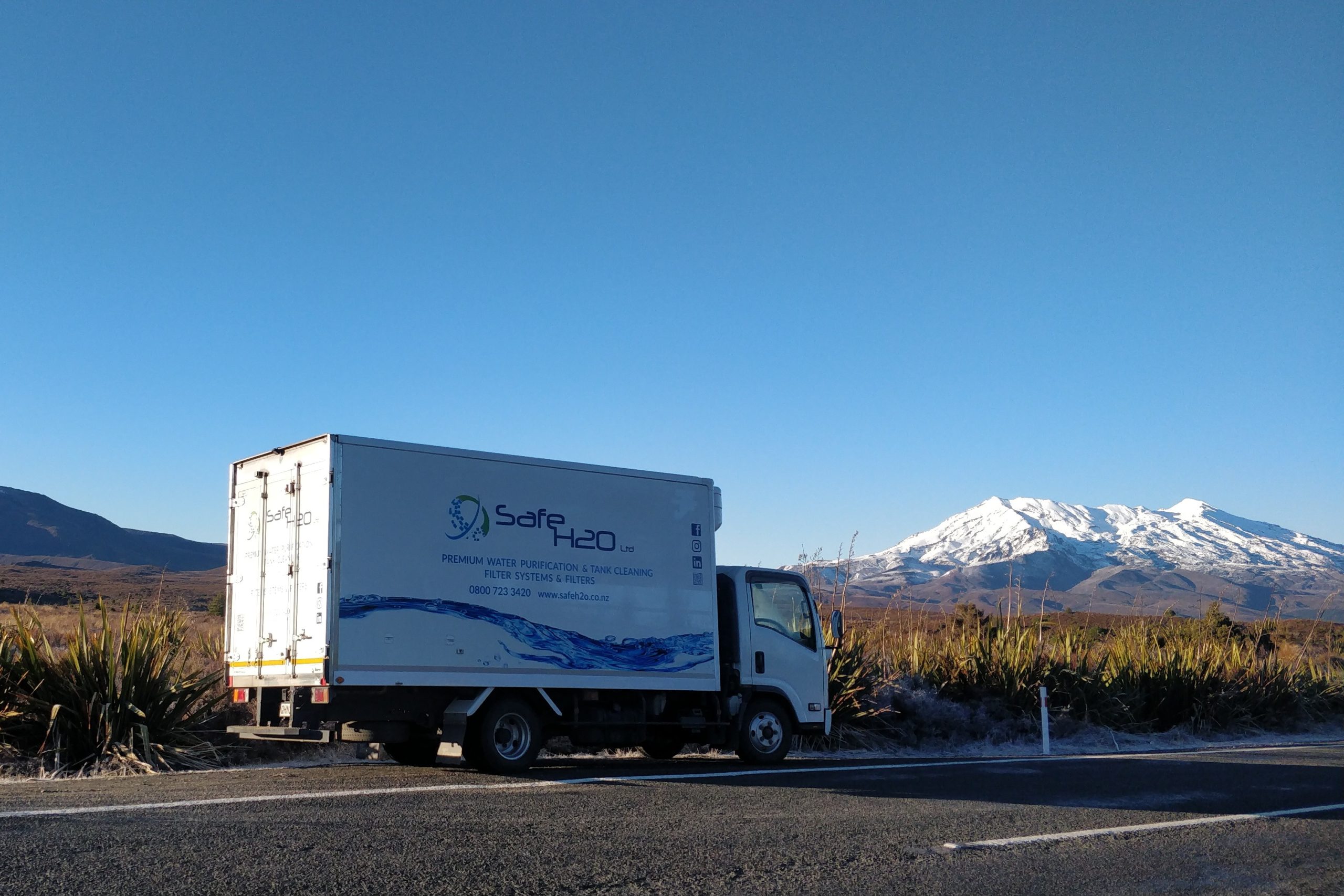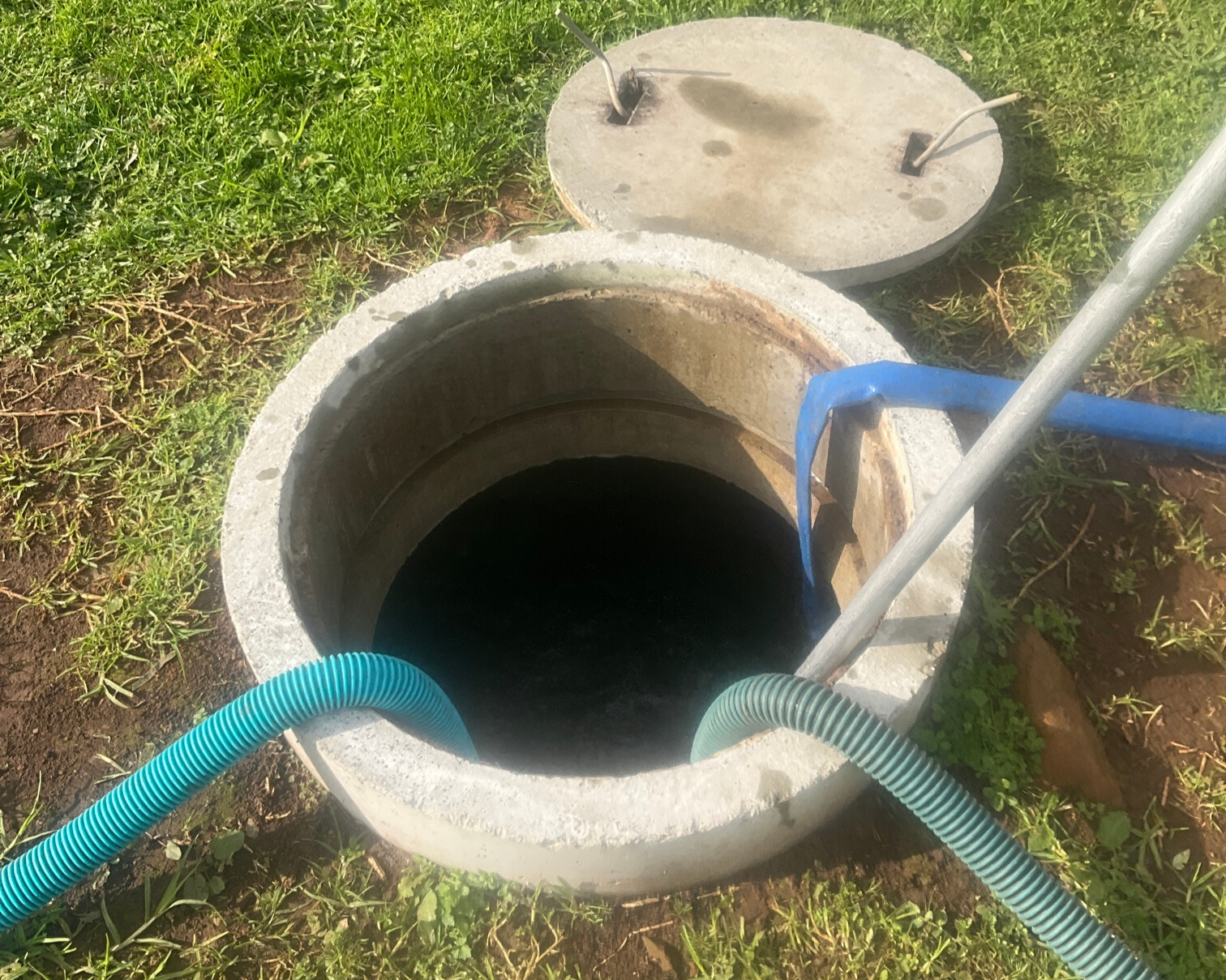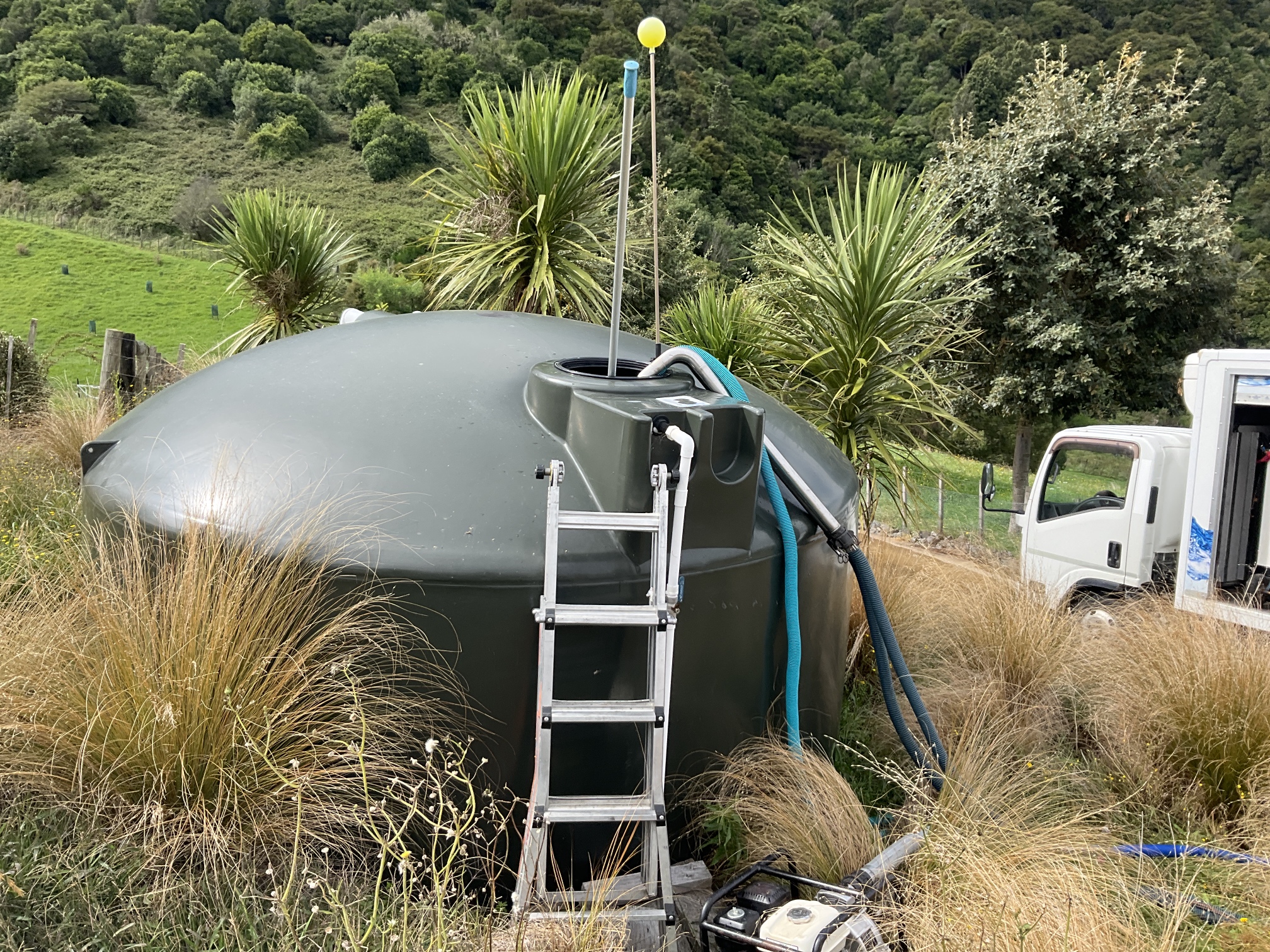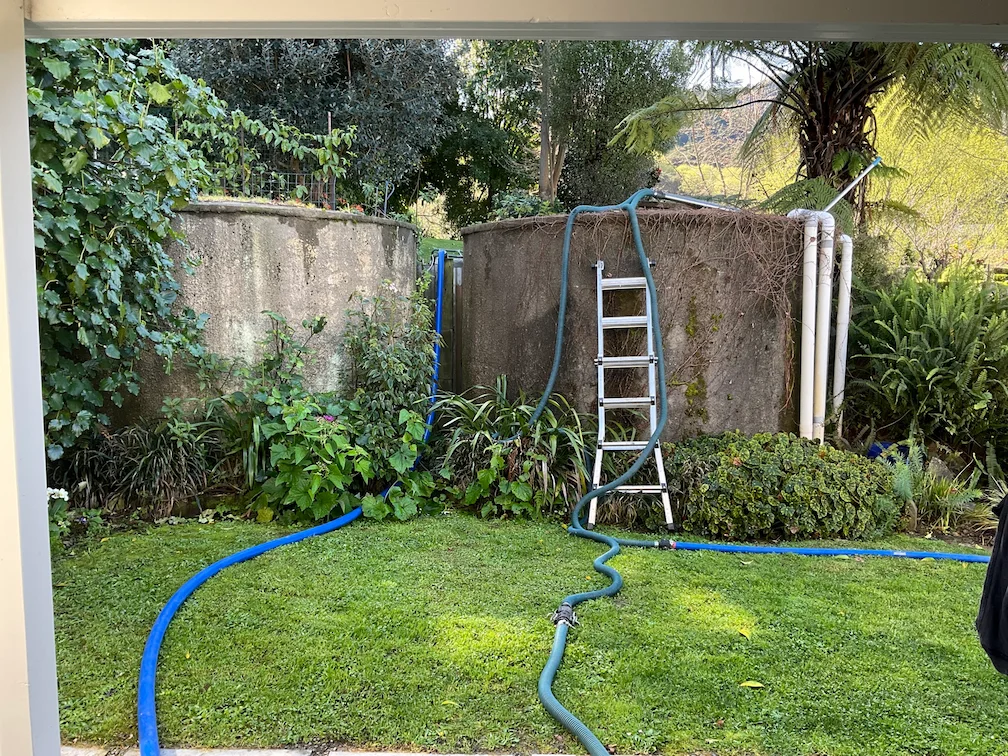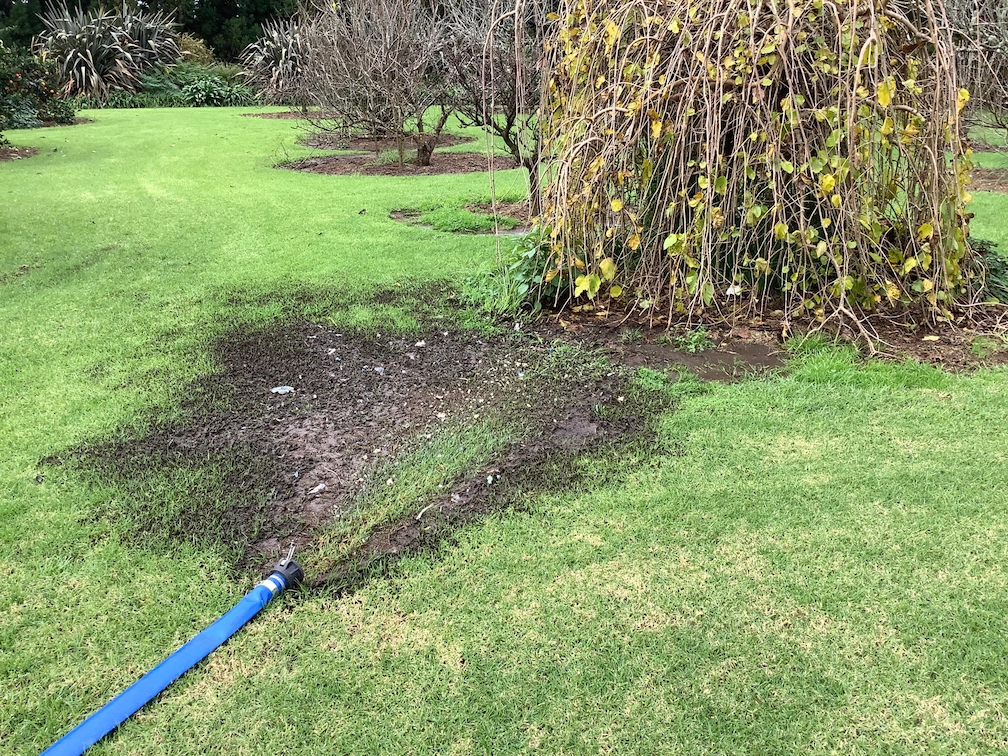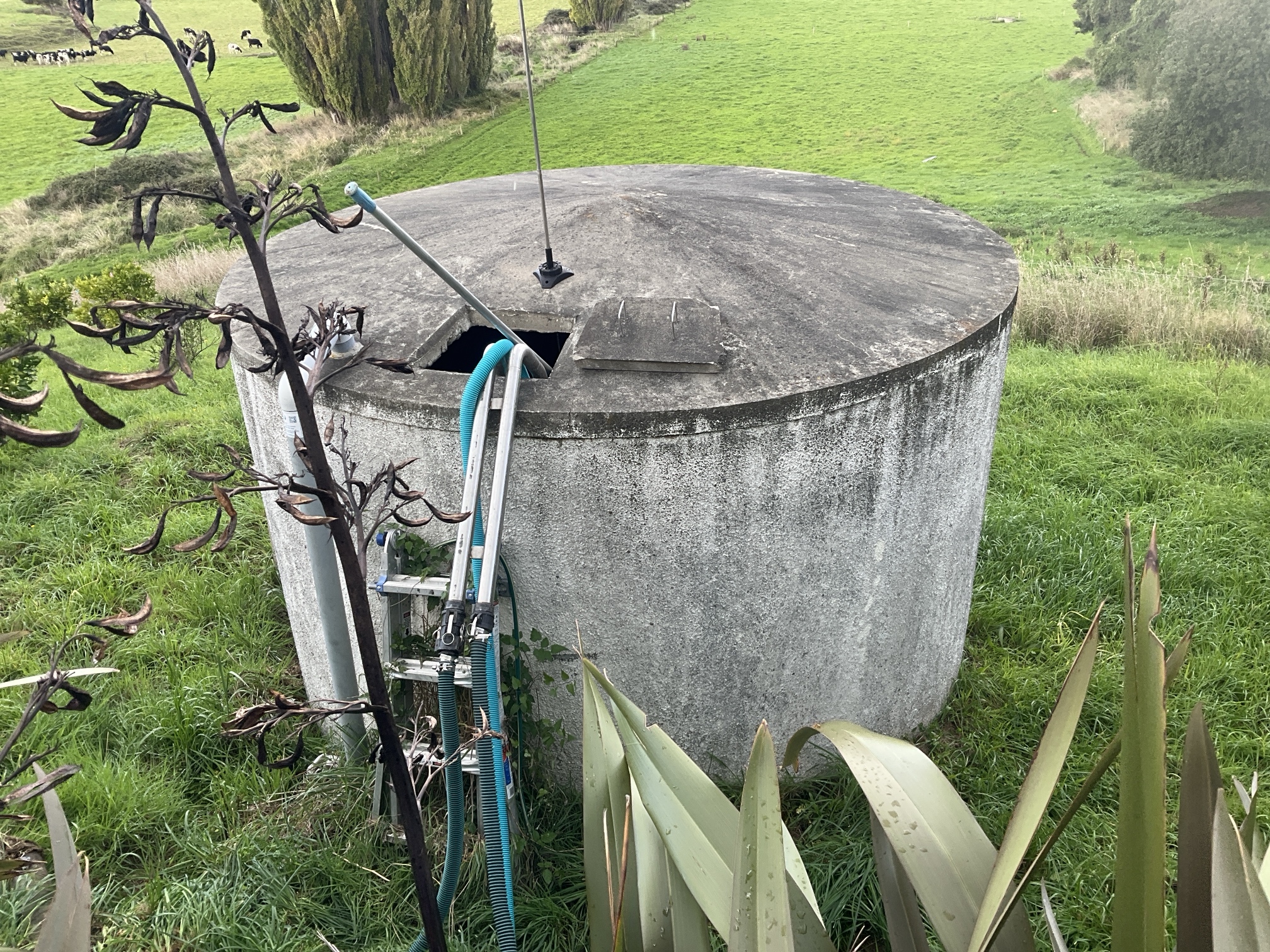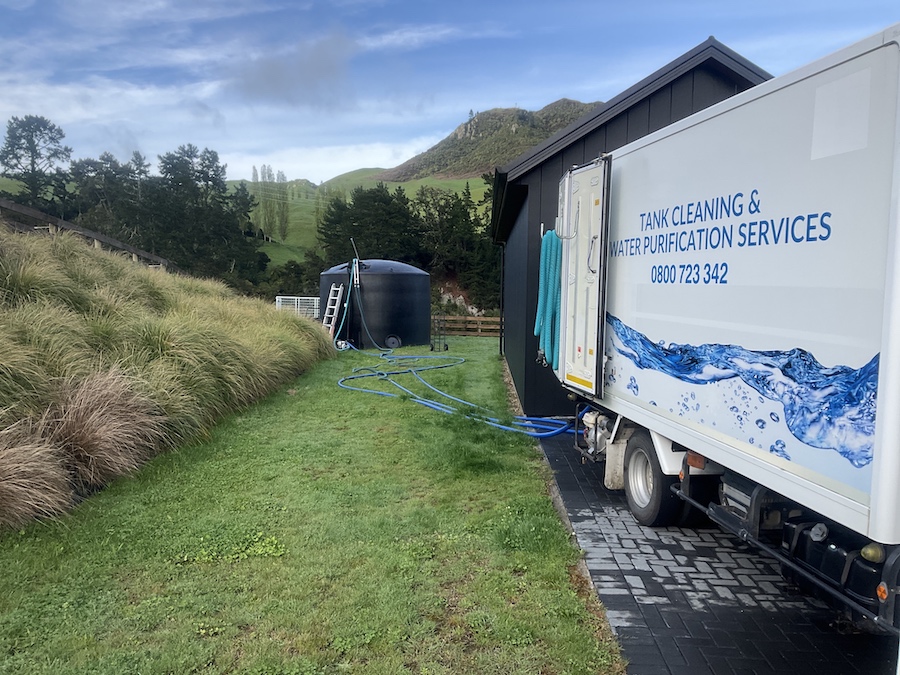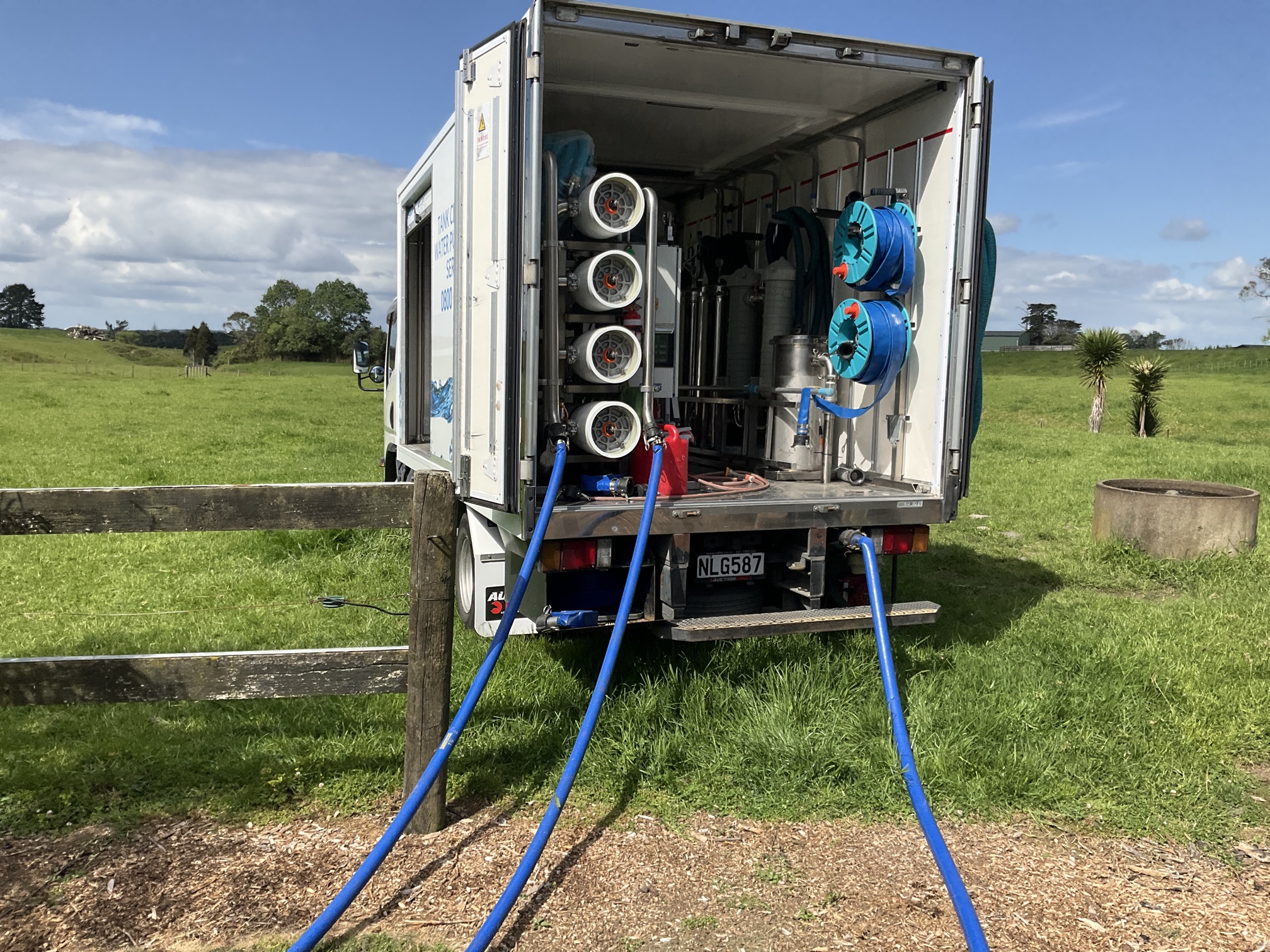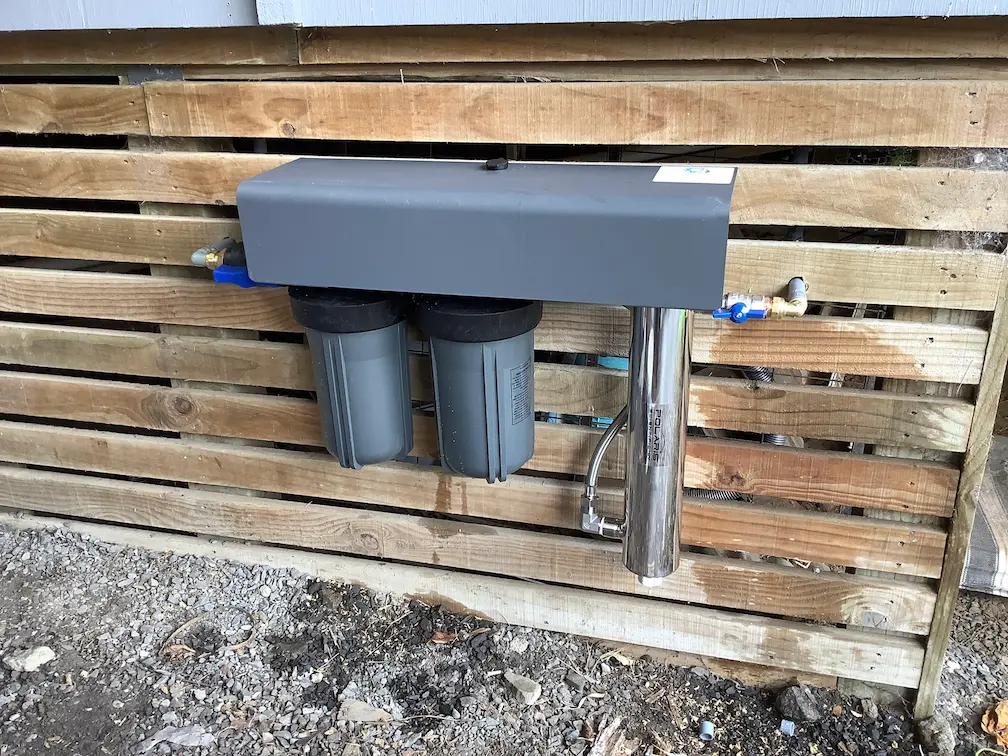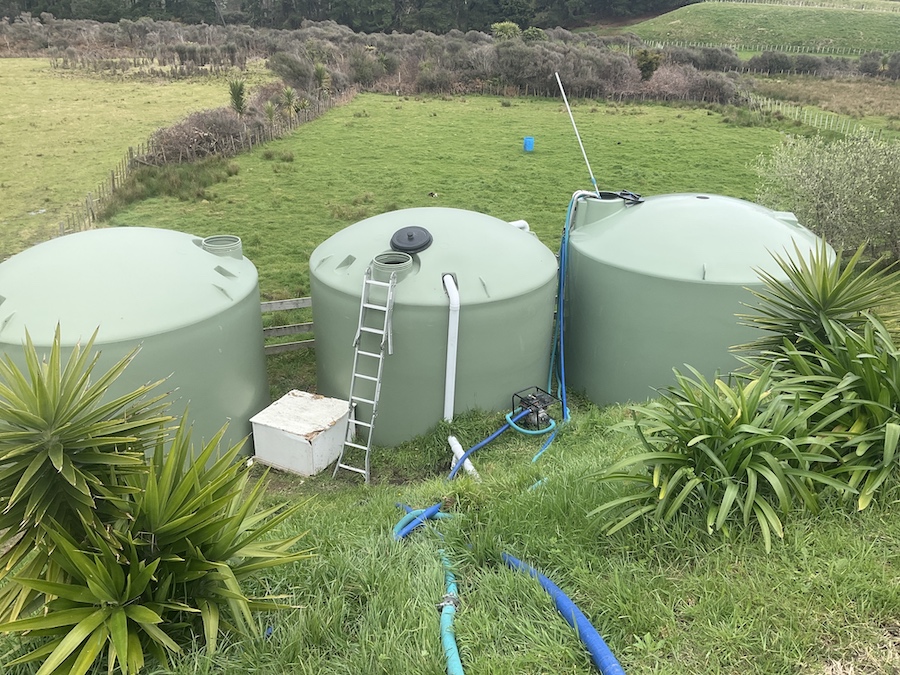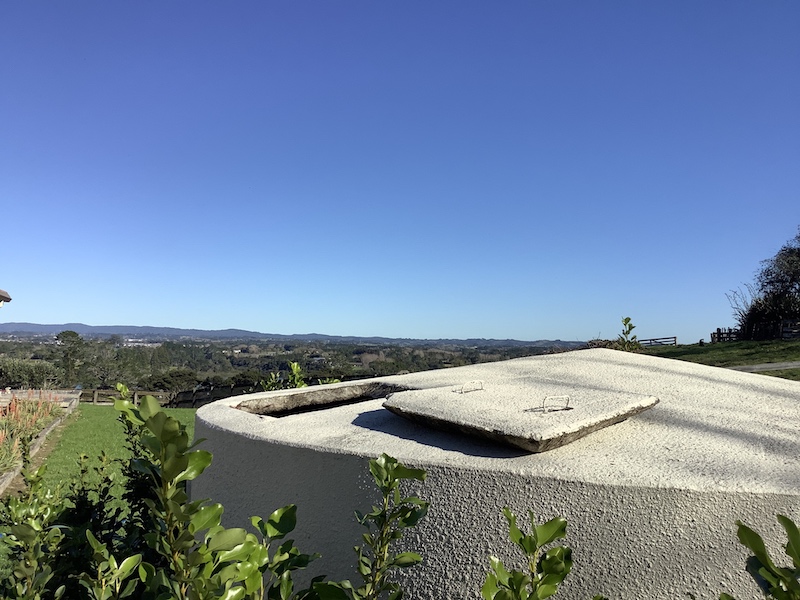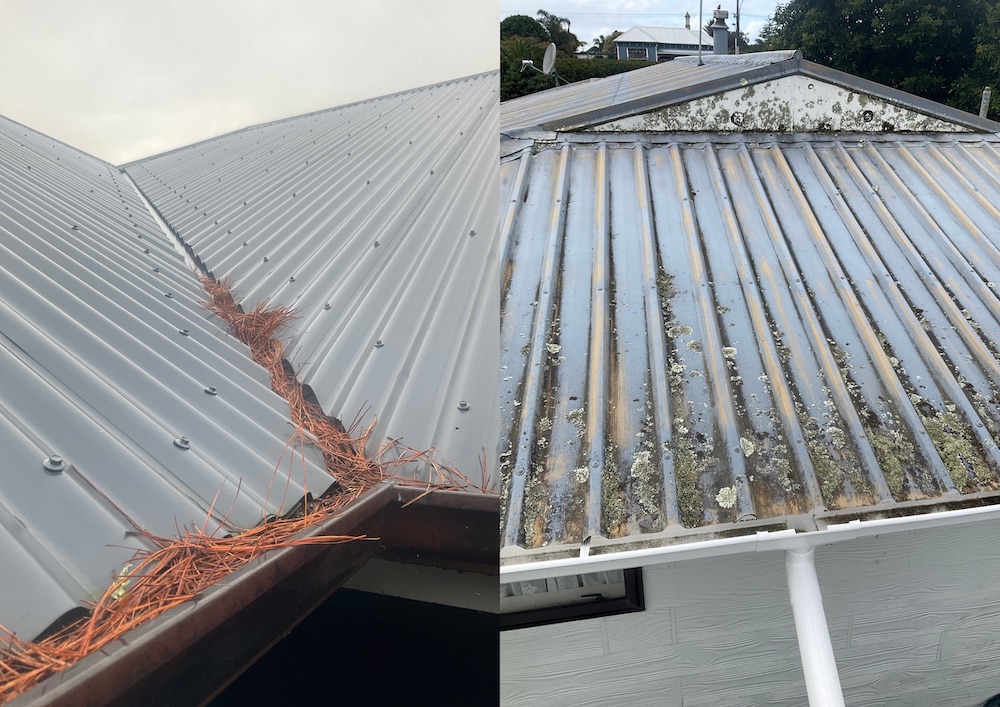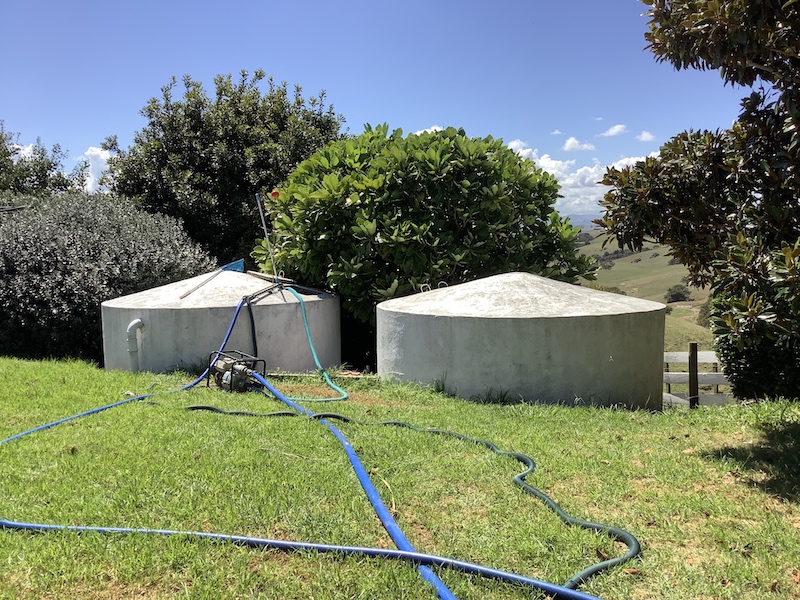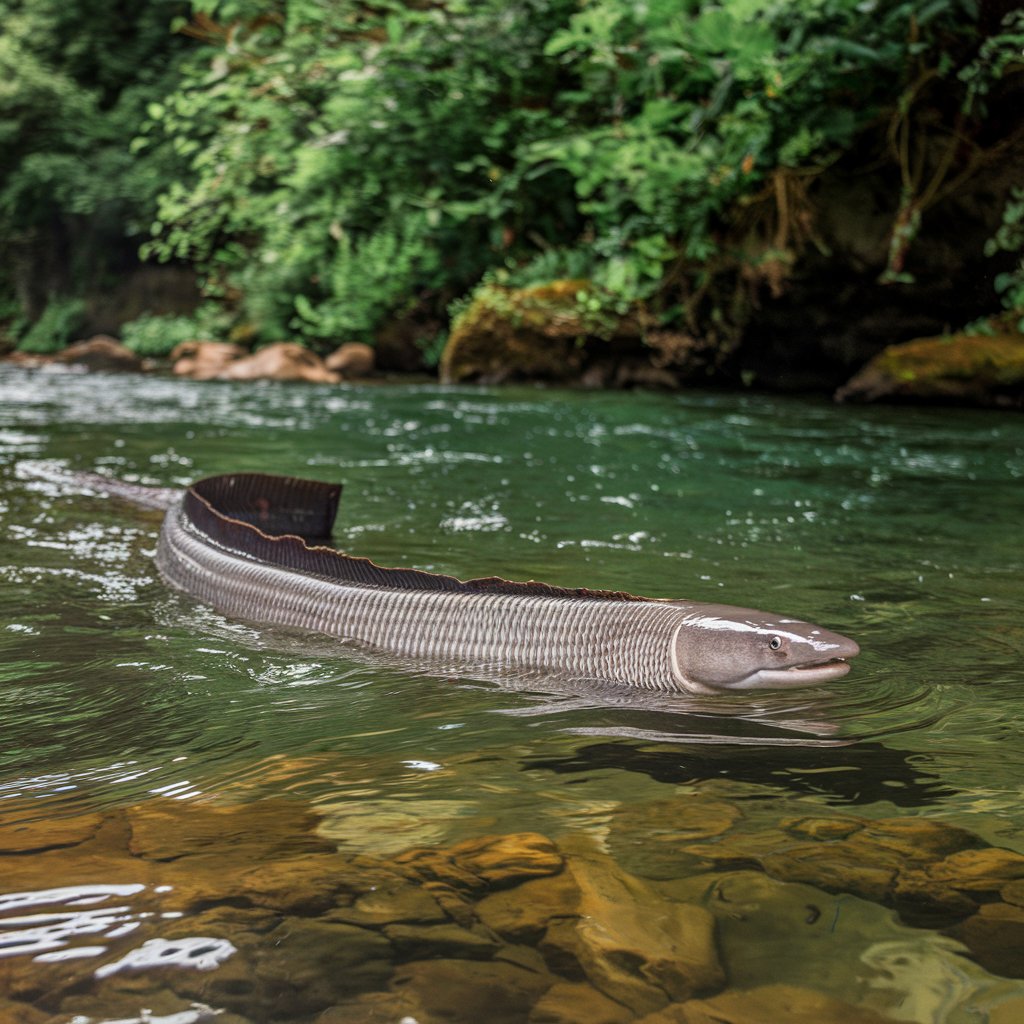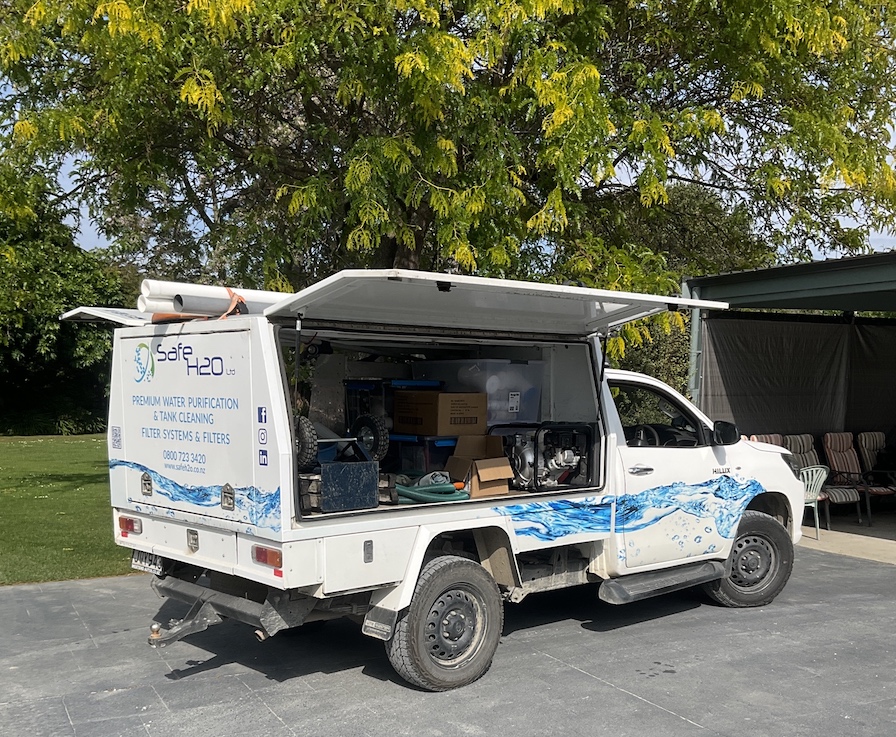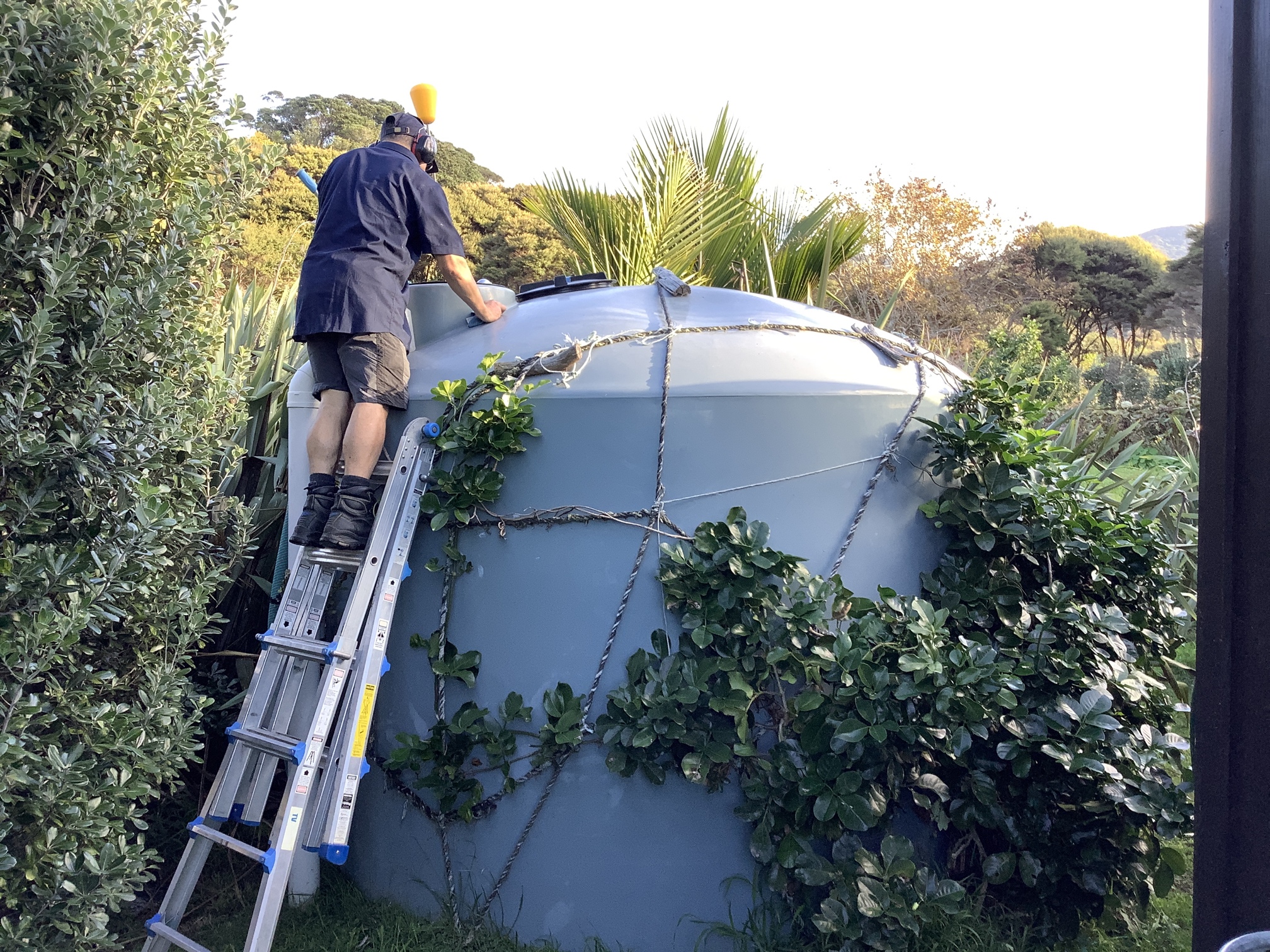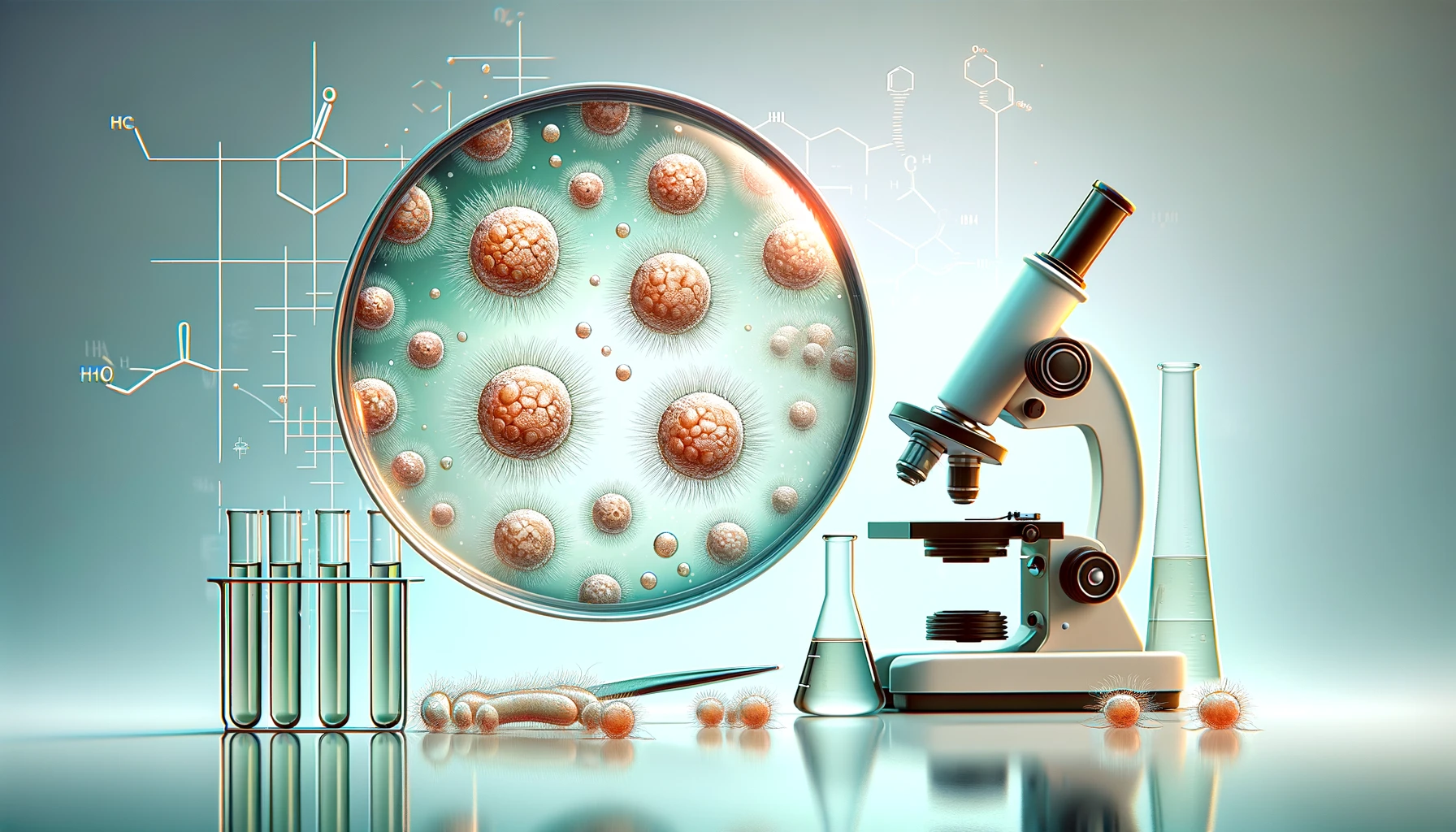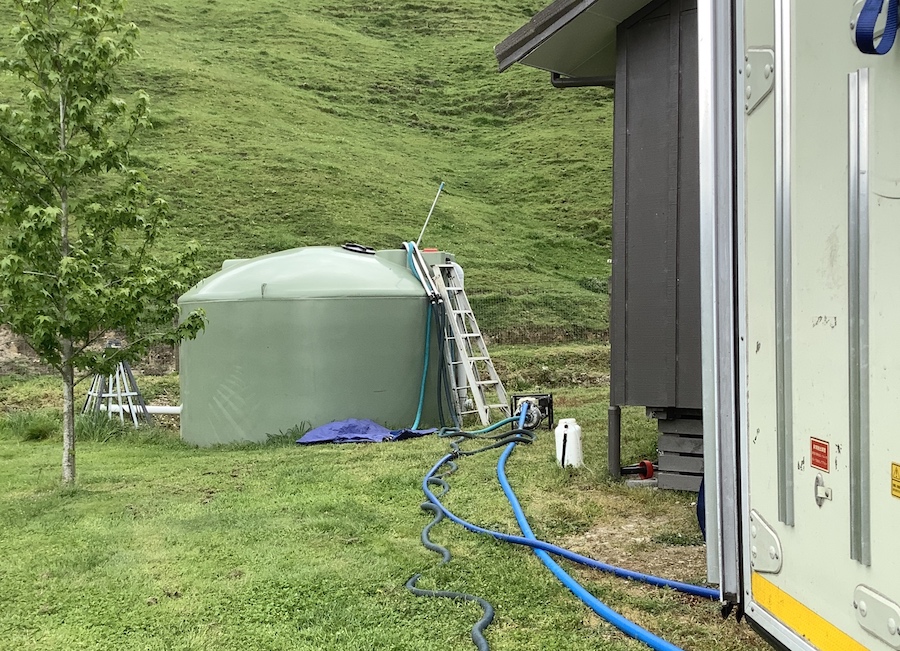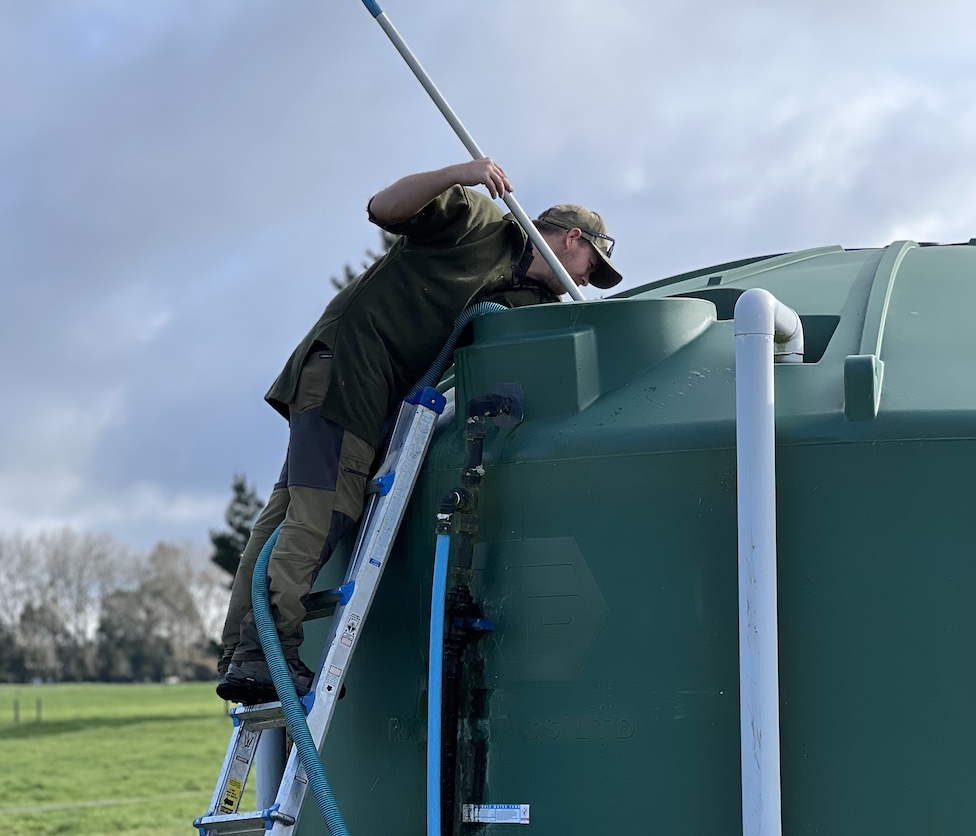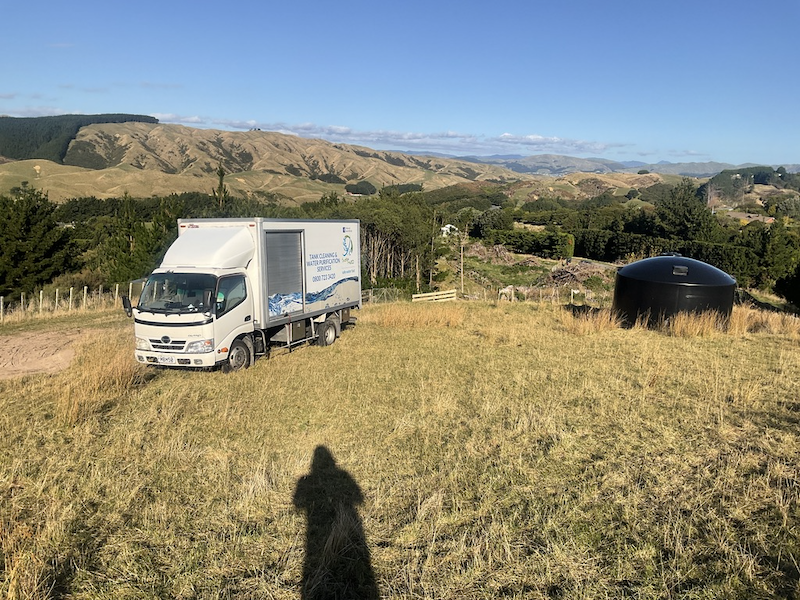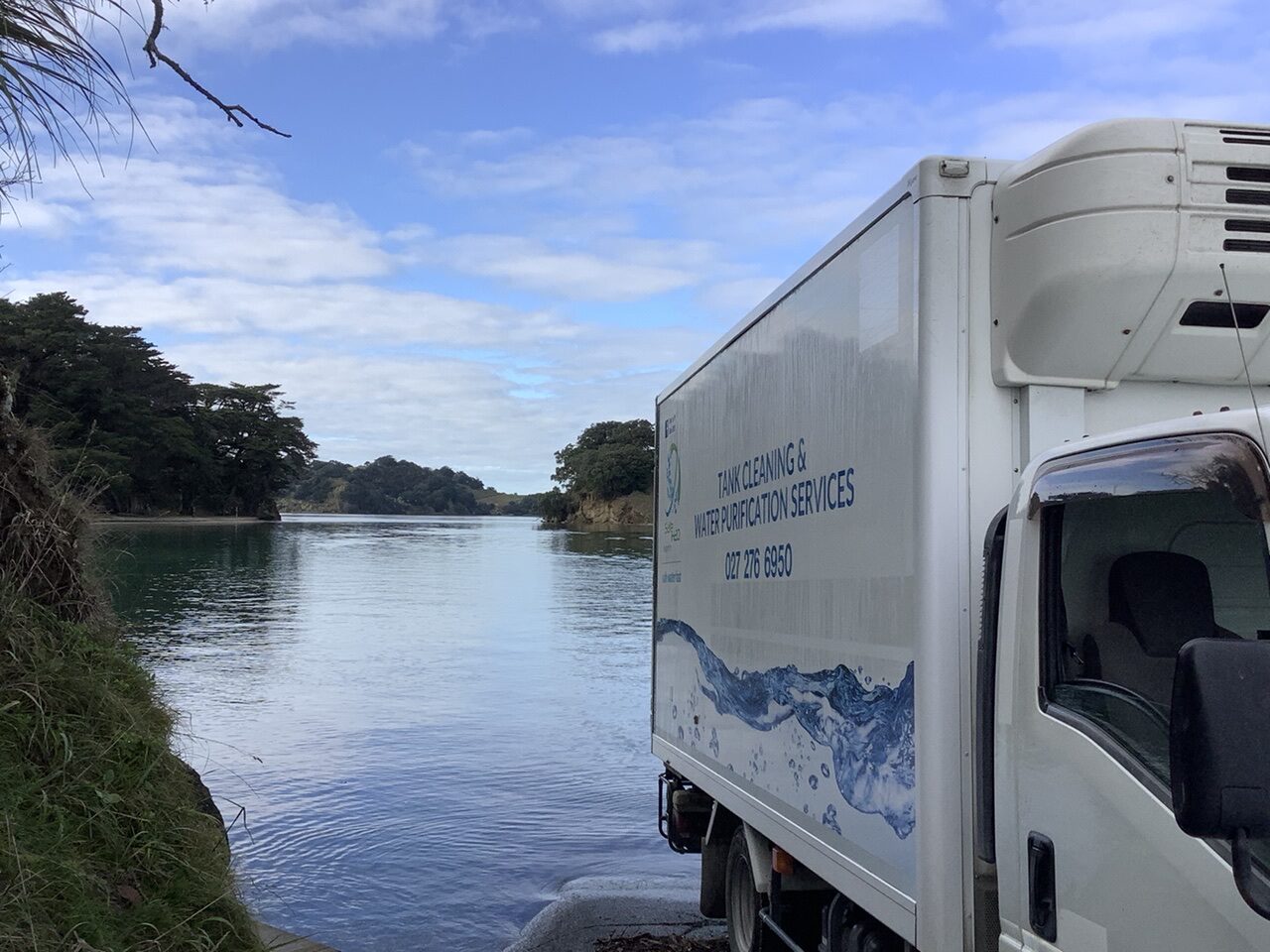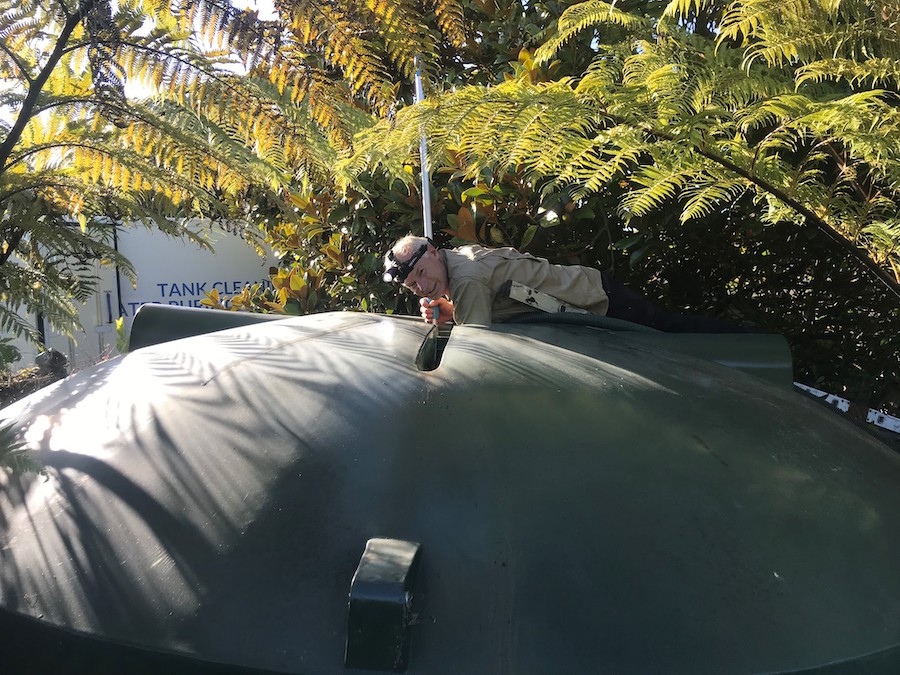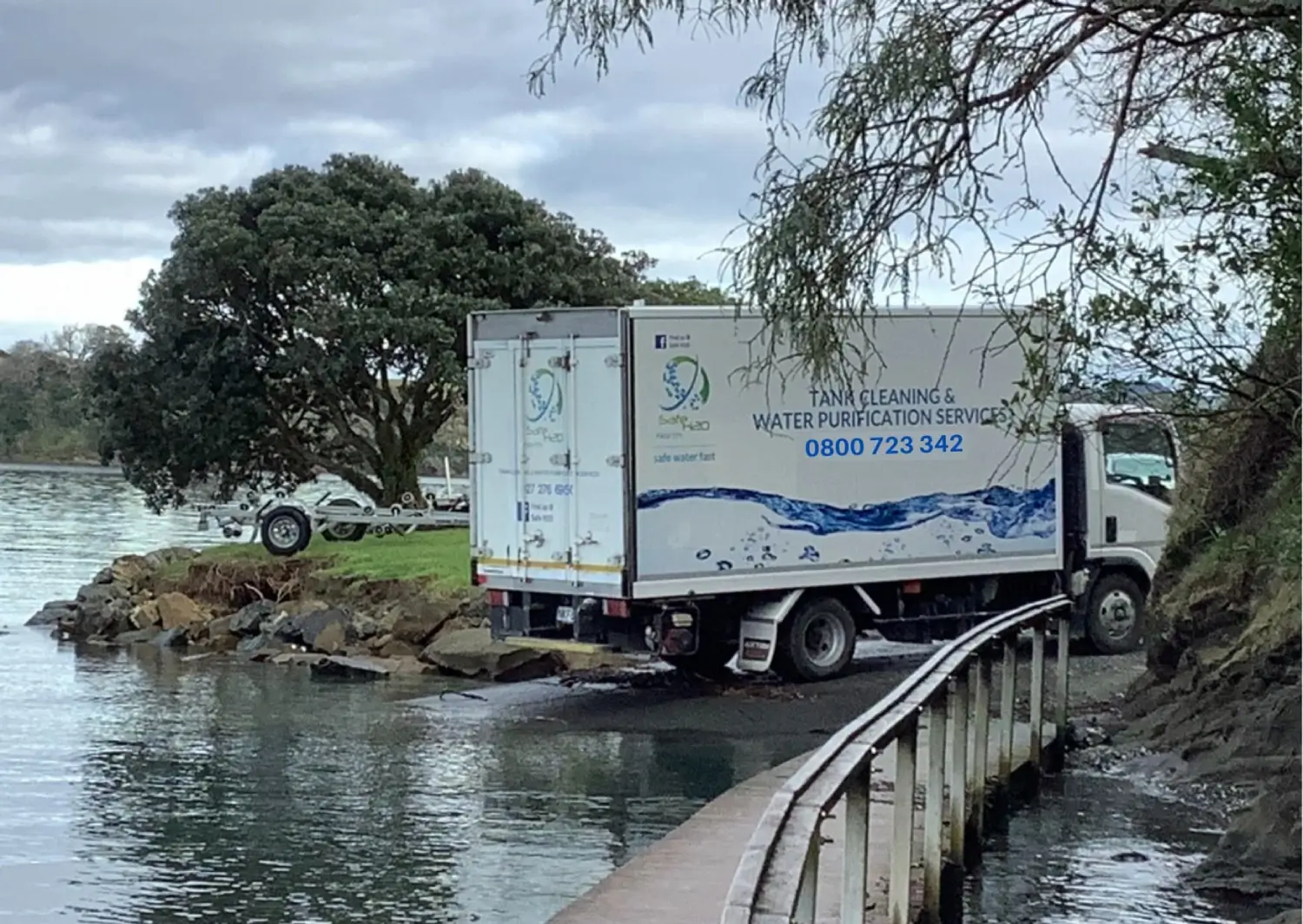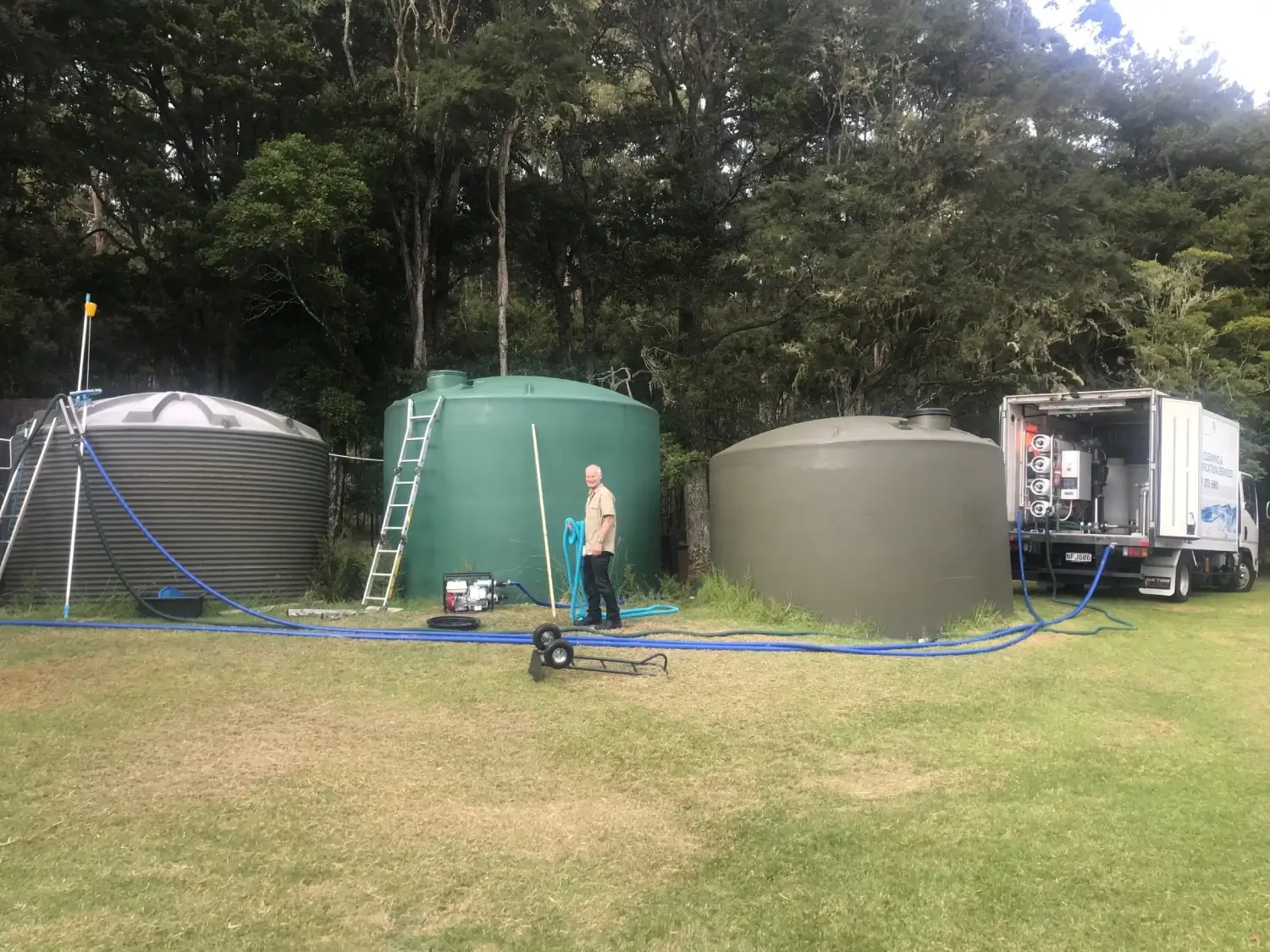The Myth of Eels Cleaning Water Tanks
In the realm of curious misconceptions, one fascinating myth suggests that eels clean water tanks. While this idea captures the imagination, it’s important to distinguish between myth and reality.
This topic first came up when we saw several comments on our Facebook page about how to use eels to clean water tanks.
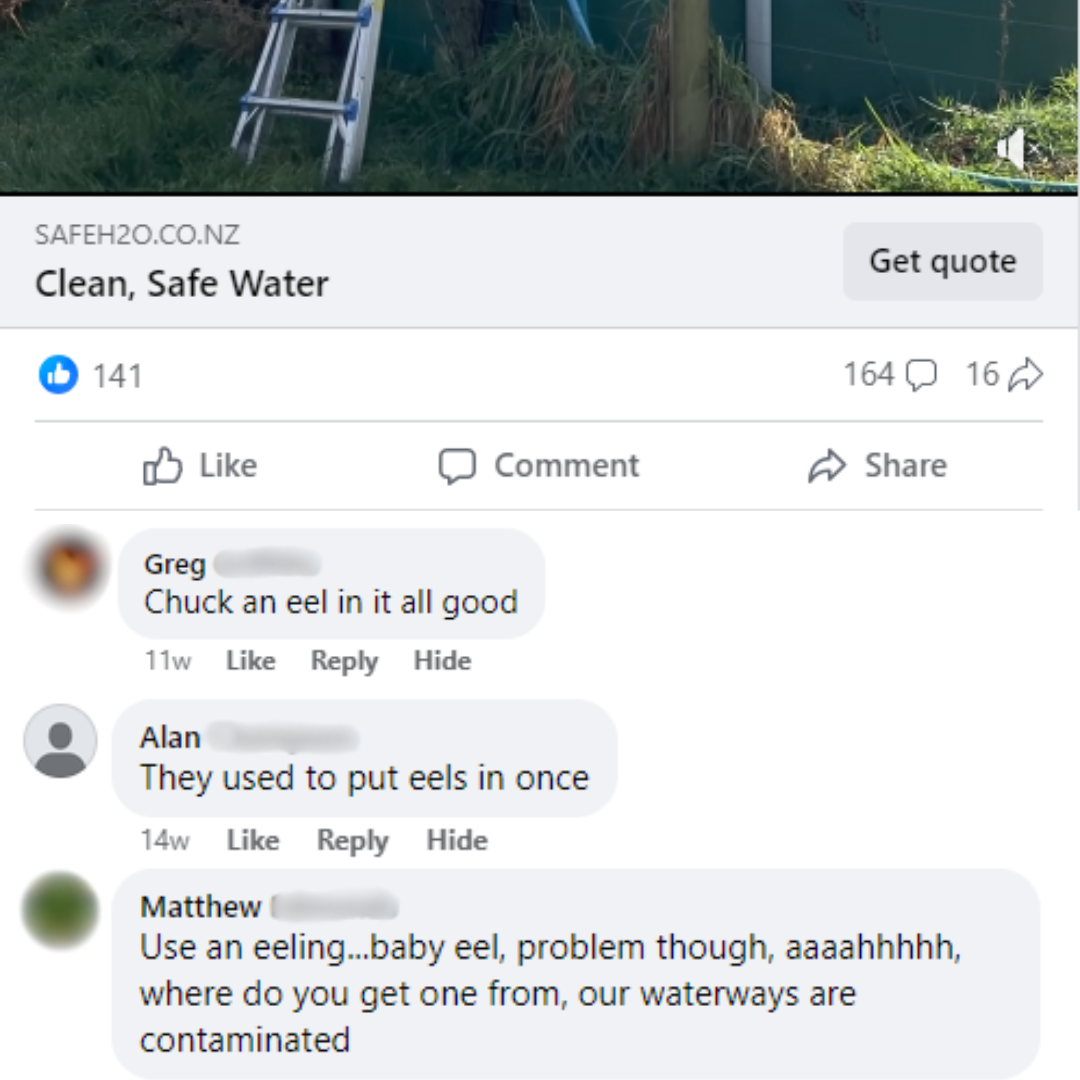
Being water tank experts, these comments did come as a surprise, so let’s explore why eels are unlikely to play any role in cleaning water tanks and how their natural habits might have contributed to this intriguing myth.
Eels’ Natural Habits and Habitat
Eels are remarkable creatures, known for their adaptability and complex life cycles. They inhabit various aquatic environments, from rivers and lakes to the ocean. Eels thrive in environments that offer natural food sources and favourable conditions, such as clean, flowing water.
They rely on balanced ecosystems where they can find food and maintain their health. However, their presence in such environments doesn’t translate to an ability to clean or filter water.
Why Eels Won’t Clean Your Tank
● Sediment and Bacteria: Eels do not consume sediment or bacteria build-up. Their diet primarily consists of smaller aquatic organisms, such as insects and small fish, rather than organic waste or contaminants found in water tanks.
● No Filtering Ability: Eels do not have the biological capability to filter water. Unlike filter-feeding organisms, eels do not possess specialised structures for removing particulate matter or contaminants from their surroundings.
● Eel Waste: If you put an eel in a drinking water tank, it would indeed contribute to the tank’s waste. Eels, like other fish, produce waste that can contaminate the water.
This last point is key – Eels will add faeces to the water tank and faecal matter constitutes the biggest risk to harmful contaminants in our water tanks. Further, as an eel is stuck in a tank with limited supply of the key elements they need to survive, they are likely to die in the tank and consequently contaminate the water further.
The Origin of the Myth
The myth that eels clean water tanks may arise from a misunderstanding of their natural habitat requirements. Eels are often associated with clean, flowing waters, and their survival in such environments could lead to the mistaken belief that they perform some sort of cleaning function.
In reality, while eels do thrive in clean environments, they do not have the
ability to clean or filter water and indeed, they add their faeces to the water.
Why Eels Don’t Thrive in Drinking Water Tanks
Eels are not well-suited to survive in drinking water tanks for several animal welfare reasons:
1. Tank Size and Space: Water tanks are usually too small and lack the habitat eels need to survive.
2. Water Quality Management: The chemicals used to treat drinking water are harmful to eels.
3. Food Sources: Drinking water tanks do not provide the necessary food sources for eels.
4. Temperature and Oxygen: The controlled conditions in a drinking water tank might not meet the eels’ specific needs.
Another factor to take into consideration is legal risks. New Zealand species like the long fin eel are considered endangered and depending on your local laws, will be a protected species.
Additionally, the New Zealand Animal Welfare Act 1999 states that animal owners must ‘meet an animal’s physical, health, and behavioural needs, and must alleviate pain or distress’. Failure to comply with fishing regulations or animal welfare standards can lead to fines or other legal consequences.
Summary
The idea that eels clean water tanks is a charming myth but does not align with their natural behaviours or environmental needs. Eels thrive in clean, natural habitats but do not have the capacity to clean or filter water in water tanks or drinking water systems.
They do not eat sediment or bacteria build-up, lack the ability to filter water and actually would contribute to contaminant build up. To maintain clean water tanks it’s essential to use proper filtration systems and regular cleaning methods.
Understanding the true role of eels in their natural environments helps dispel myths and highlights the importance of proper tank maintenance to ensure that your drinking water remains pure and safe.
Water Tank Maintenance and Cleaning:
Water tanks are designed to collect and store water, which is used for various purposes. To maintain the water’s quality, these tanks require regular cleaning and maintenance, including:
● Physical Cleaning: Removing debris, organic material, and sediment.
● Filtration: Using filters to remove contaminants like sediment and pathogens.
● Disinfection: UV treatment to kill bacteria and applying chemicals to ensure the water is safe for use.
These tasks are essential for keeping the water clean and safe for consumption, and they are typically managed by professional water tank cleaners like Safe H2O rather than by any aquatic creatures. Learn more about why you should use a Water Tank Cleaning Specialist here.
Do you need your water tank cleaned?
Safe H2O follows a comprehensive cleaning process that leaves no stone unturned.
From initial inspection to final testing, every step of the cleaning process is meticulously planned and executed to ensure optimal results.
Specialists employ a combination of techniques, including sediment removal, nano-filtration and disinfection, to restore your tank AND water to its pristine condition and safeguard your water quality.
If you’re looking for NZ’s largest and top-rated water tank cleaners, look no further! You can get a tank cleaning cost estimate by filling in this form.
In this blog, we'll explore these frequent water tank problems and provide practical solutions to address them effectively
Smoke and soot can contaminate NZ water tanks. Learn how it happens, the health risks, and Safe H2O’s expert tips for cleaning and prevention.
This comprehensive guide examines the benefits and drawbacks of DIY and professional water tank cleaning, enabling you to make the best choice for your home.
Winter’s cooler weather might not have you thinking about your water tank - but it should.
Whether you’re collecting rainwater, drawing from a bore, or tapping into a stream, your water tank is the heart of your...
Whether you’re collecting rainwater, drawing from a bore, or tapping into a stream, your water tank is the heart of your...
How Possums, Rodents, and Birds Get into Your Water Tank – and How to Keep Them Out When thinking about water quality, …
What’s in Your Water? Common Contaminants in NZ Drinking Water Tanks Whether your water comes from rainfall, a bore or a nearby …
Water Tank Cleaning Myths Debunked When it comes to maintaining clean and safe water in your tank, there can be a bit …
Autumn Water Tank Care Tips: Preparing for the Seasonal Change As the crisp air of autumn rolls in, it’s time to think …
Water Tank Cleaning: A Comparison of Traditional vs. Our Innovative Method When it comes to cleaning your water tank, Safe H2O cleans …
UNDERSTANDING FILTRATION SYSTEMS: WHAT IS SEDIMENT AND UV WATER FILTRATION? Your water source likely contains a myriad of sediments and particles, ranging …
Water Tanks 101: A Beginner’s Guide to Clean, Safe Water for Your Property Water tanks are an essential resource for those on …
What can I do before water enters my tank to help minimise my risks? Spring or surface water (streams) will usually be …
When it comes to maintaining a healthy rainwater fed tank, one of the most overlooked aspects is the cleanliness of your roof and gutters.
Flush Caps, Leaf Diverters, and More: Methods to Help Protect Your Water Supply When it comes to maintaining a clean and safe …
In the realm of curious misconceptions, one fascinating myth suggests that eels clean water tanks. While this idea captures the...
Why having ‘Immunity’ to Bad Tank Water is a Bad Thing When it comes to maintaining a healthy home, clean water is …
Safe H2O Collaborates with Isaac’s Plumbing, Pumping and Electrical Here at Safe H2O, we aim to provide exceptional advice, service, and support …
How Often Do New Zealand Schools Need to Clean Their Water Tanks? Here in NZ, managing water supplies, including water tank maintenance …
What is Cryptosporidium and How to Keep Your Water Safe What is Cryptosporidium? In simple terms, Cryptosporidium is a tiny parasite that …
Why you should use a Water Tank Cleaning Specialist Well maintained water tanks are the backbone of clean water storage and supply …
Guarding Against E. coli: Essential Strategies for Ensuring Safe Water Tank Systems Water tanks are an essential source of clean drinking water …
5 Top Reasons to Keep Your Water Tank Clean in New Zealand Cleaning your water tanks is something that’s probably not always …
Autumn Alert: Why Now is the Perfect Time to Clean Your Water Tank As the autumn leaves are about to fall and …
What are my Legal Obligations for water tank cleaning in New Zealand? Taumata Arowai is the new Water Services Regulator for Aotearoa …
Top signs your water tank needs cleaning – Don’t ignore these red flags Your water tank is a vital component of your …
How Often Should I Clean My Water Tank in New Zealand? If you are one of the thousands of New Zealanders with …
The Risks of Cleaning Your Water Tank with Janola or Household Bleach Should you use Janola to clean your water tank? Here …
12 Ways to Save Your Tank Water Worried about your water tanks running empty? Rainfed tank water is a limited supply and …
How much does it cost to clean my water tank? The cost of cleaning a typical New Zealand water tank depends on …

